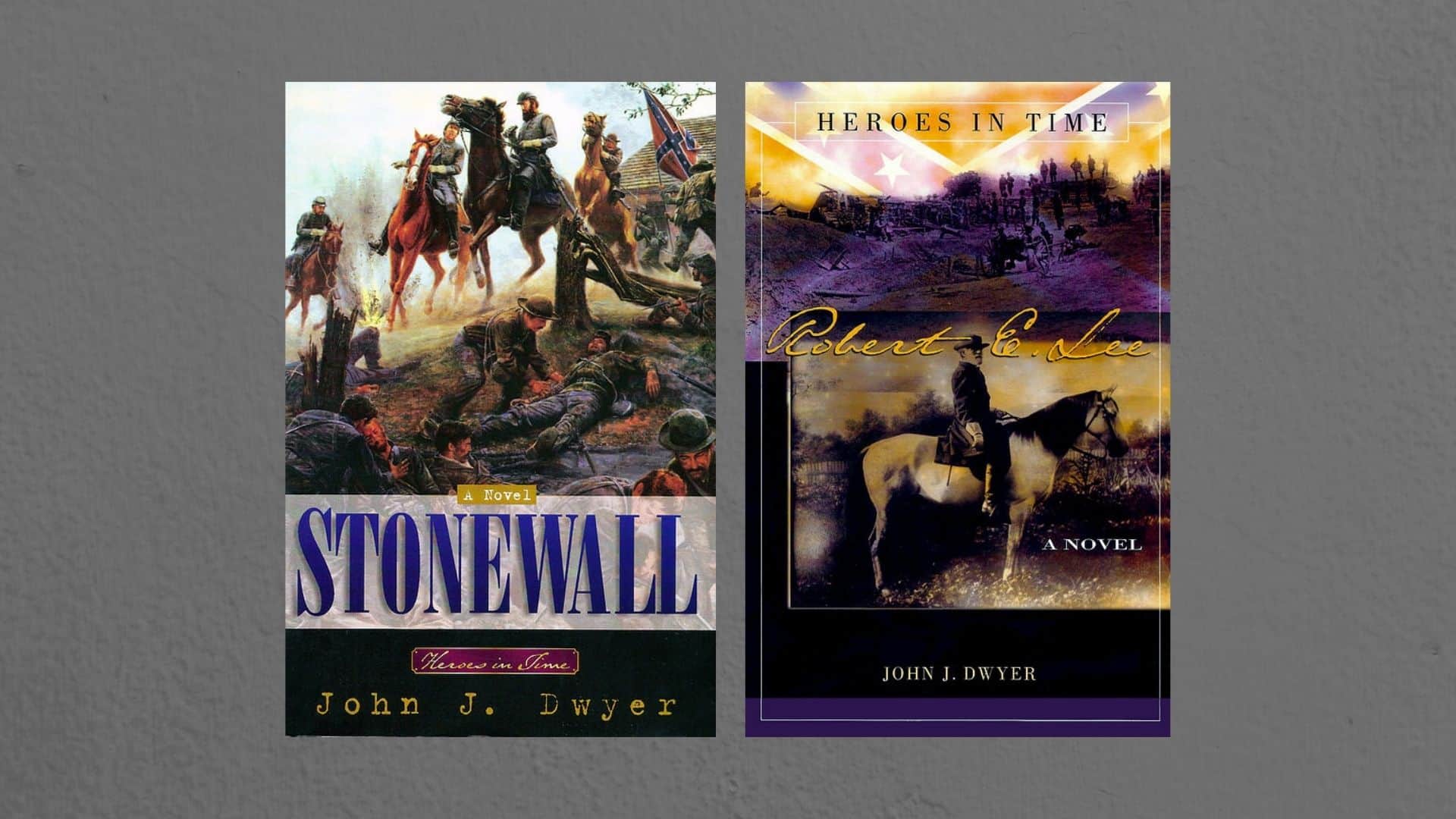Author and historian John J. Dwyer wrote “A Note to Readers” and placed it on the final pages of Stonewall, his historical novel Broadman & Holman Publishers in Nashville, Tennessee published in 1998. (A sequel, Robert E. Lee, would follow in 2002.) Here is a portion of what Dwyer said to his readers.

I would hope it might be understood that in my attempt to convey both the facts and the sense of time and place of Stonewall, I have tried to place the reader in the shoes of those who lived the historic events this tale chronicles. In that regard, my narrative has often spoken through voices which seem alien to the contemporary culture of late twentieth-century America, a culture which teaches looking out for one’s own self over others. Sometimes, my narrative has spoken through voices with which I personally disagree. For instance, I am not an apologist for slavery. Nor am I an apologist for the belief that the ethnic stock of any group is superior to that of another, which is the definition of racism, as rendered by the American Heritage Dictionary of the English Language.
Yet some of the theories traditionally offered for why the American Republic fought one of history’s most desperate wars with itself are more informed by our contemporary sensibilities and agendas than a historical record that, as life itself, often defies the simplistic explanations we should like to assign it. It is oh-so-easy from the comfort of our big-screened living rooms and air-conditioned, government-subsidized lecture halls to criticize those who have come before us. I shudder to think what will be thought of us a century or more from now.
[At least] some of the pat, easily packaged explanations for the War Between the States/American Civil War upon which nearly all of us were weaned are, at best, incomplete in their historicity, and, at worst, part of an indoctrination of intolerant political correctness.
—historical novelist John J. Dwyer—
I hope I have succeeded in demonstrating to the reader that some of the pat, easily packaged explanations for the War Between the States/American Civil War upon which nearly all of us were weaned are, at best, incomplete in their historicity, and, at worst, part of an indoctrination of intolerant political correctness. The latter has for some time been foisted on Americans by institutions such as government, education, and entertainment/media that once served to promote rather than mock the concept, as espoused in the opening question of the Larger Catechism of the Westminster Confession of Faith, that “Man’s chief and highest end is to glorify God, and fully to enjoy him forever.”
Dwyer, John. Stonewall. B&H Publishing. Kindle Edition, locations 14884-14906.
This page is a part of a larger article.
